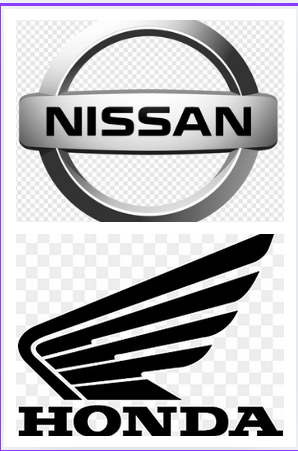By Felicia Nwosu
A mega-merger poised to reshape the global automotive landscape appears to be skidding to a halt. Just months after announcing exploratory talks, Honda and Nissan are reportedly poised to abandon their proposed union, a $58 billion deal that would have forged the world’s fourth-largest car manufacturer.
Whispers of discord have intensified into reports of irreconcilable differences, primarily centering on control. Sources suggest that Honda, Japan’s second-largest automaker and nearly five times the market value of Nissan, sought a dominant position within the merged entity, a condition that clashed with the initial vision of a partnership of equals. This power imbalance appears to be the critical factor driving Honda’s decision to withdraw.
The unraveling of this ambitious alliance raises significant questions about Nissan’s future. The company, still grappling with the fallout from the Carlos Ghosn era and the disruptive shift to electric vehicles, faces considerable challenges. While a formal announcement is expected soon, the collapse of the merger leaves Nissan navigating a turbulent market largely on its own.
Reuters reported that the proposed merger had envisioned a complex structure, with both Honda and Nissan transferring their shares into a joint holding company. Mitsubishi, already partially owned by Nissan, was also invited to participate. However, earlier reports hinted at Mitsubishi’s reluctance, citing concerns about its diminished independence within such a large conglomerate. While Mitsubishi’s official stance remains one of “considering various possibilities,” its participation now seems even less likely.
Despite the apparent collapse of the full merger, the door may not be entirely closed on some form of collaboration. Honda and Nissan already have existing partnerships in areas like electric vehicle and software development, a collaboration that also includes Mitsubishi. Furthermore, Nissan and Mitsubishi share vehicle platforms and technologies through their existing alliance, which also includes Renault. It’s possible that these existing collaborations could deepen even without the overarching merger.
The news of the potential merger breakdown sent ripples through the financial markets. Nissan’s shares plummeted on the Tokyo Stock Exchange, prompting a trading halt. Conversely, Honda’s shares surged, reflecting investor relief at the prospect of the deal being abandoned. This market reaction underscores the uncertainty surrounding Nissan’s future and the perceived benefits for Honda in remaining independent.
The failed merger underscores the complexities of navigating the rapidly transforming automotive industry. With the rise of electric vehicles and intense competition from Chinese manufacturers, automakers are exploring various strategies to consolidate resources and gain a competitive edge. However, as the Honda-Nissan saga demonstrates, even the most promising alliances can falter when fundamental issues of control and long-term strategy remain unresolved.





Comment
No comments found.